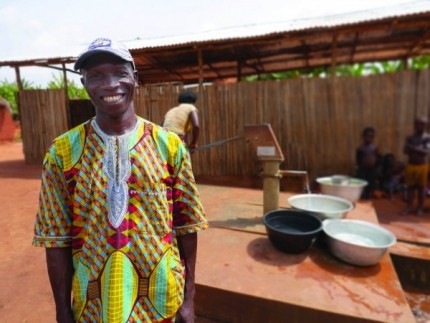
Before receiving a deep-capped well, the villagers of Windjinnawa, Benin knew that the only water available to them was unsafe and could cause them to contract deadly diseases. Still, they drank the dirty water because they had no other option.
“We used to get our water from the swamp,” Village Chief Jacques told the Water for Life Initiative team during a visit in August. “We know that it is not potable, that it is dirty water, but we had no choice. When we drank it, both kids and adults would get sick. Kids have died because of cholera (a waterborne disease).”
Once GAiN provided a well for Windjinnawa, the difference in health was immediate and significant. There was no more sickness caused by contaminated water. Villagers were able to save money because they no longer had to pay for hospital visits or medicine for treatment of illnesses.
“People were amazed,” Jacques recalled the first sight of clean water from the well. “They could not believe it. They were asking, “Is this clean water that is coming out of here?” This is some kind of dream for us. We never thought we would have clean water in our village.”
Since the addition of the well in the village, Windjinnawa set up a system to collect 10 CFA francs ($0.02 CAD) per bucket, putting the money aside for well maintenance and possible future repairs.
“For people [10 CFA francs per bucket] is affordable. The well has brought them so much relief from going to the swamp, which is even farther. They’re happier to pay 10 francs per bucket than going to the swamp.”
Jacques aspires that the village will be able to save enough money from the funds collected to build a water tower, to get water pumped directly to family homes.
Until then, GAiN’s water program continues to make an impact in Windjinnawa households through different community education and health opportunities.
Jacques explained how he and other villagers are implementing what they learned in hygiene and sanitation trainings. He gave the example of putting a lid on the bucket after filling it up with water, and having soap next to it, ready for use.
“We use the handwashing stations and even small children are taught to wash their hands before they do anything.”
Gender sensitivity trainings also made a great impression on him. “When there is mutual understanding between the man and the woman in the house and when you actually apply the teachings in your household, it sure brings peace.”
WANT TO GIVE THE GIFT OF CLEAN WATER TO A VILLAGE?
GIVE HERE
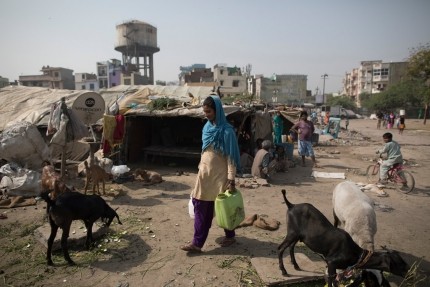
12 July 2017 – Some three in ten people around the world lack access to safe and readily available water at home, and almost six in ten to safely managed sanitation, a new United Nations report has warned, calling on countries to do more to fulfil these basic human needs.
According to the World Health Organization (WHO) and the UN Children’s Fund (UNICEF) joint report, Progress on Drinking Water, Sanitation and Hygiene: 2017 Update and Sustainable Development Goal Baselines, many homes, healthcare facilities and schools also lack soap and water for handwashing, putting the health of all people – but especially young children – at risk for deadly diseases.
“Safe water, sanitation and hygiene at home should not be a privilege of only those who are rich or live in urban centres,” Tedros Adhanom Ghebreyesus, the WHO Director-General, said in a news release, announcing the findings and noting that those living in rural areas are the worst affected.
As a result of lack of these basic services, millions fall ill to diseases – that could, otherwise, have been easily prevented – such as diarrhoea which claims the lives of 361,000 children under the age of five die, every year, noted the UN agencies.
“Safe water, effective sanitation and hygiene are critical to the health of every child and every community – and thus are essential to building stronger, healthier, and more equitable societies,” underscored Anthony Lake, the Executive Director of UNICEF.
‘Significant’ inequalities persist
Good hygiene is one of the simplest and most effective ways to prevent the spread of diseases such as diarrhoea, cholera, dysentery, hepatitis A, and typhoid.
However, findings in the report revealed that access to water and soap for handwashing varies immensely in the 70 countries with available data, from 15 per cent of the population in sub-Saharan Africa to 76 per cent in western Asia and northern Africa.
These significant inequalities also put the implementation of the Sustainable Development Goals (SDGs), in particular Goal 6 on ensuring availability and sustainable management of water and sanitation for all at risk.
Backed by the data, the two UN agencies also warned that in as many as 90 countries around the world, progress towards basic sanitation is too slow, “meaning they will not reach universal coverage by 2030”.
In addition, hundreds of millions without even ‘basic’ drinking water
According to the report, of the 2.1 billion people who do not have safely managed water, 844 million do not have even a basic drinking water service.
This includes 263 million people who have to spend over 30 minutes per trip collecting water from sources outside the home, and 159 million who still drink untreated water from surface water sources, such as streams or lakes.
Furthermore, of the 4.5 billion people who do not have safely managed sanitation, 2.3 billion still do not have basic sanitation services, including nearly 600 million people who share a toilet or latrine with other households, and 892 million people – mostly in rural areas – who defecate in the open.
Improvements these services, are therefore essential not only for realizing the 2030 Agenda for Sustainable Development and giving the most vulnerable a chance at a better future.
“As we improve these services in the most disadvantaged communities and for the most disadvantaged children today, we give them a fairer chance at a better tomorrow,” said Mr. Lake.
In the same vein, Mr. Ghebreyesus underscored: “These are some of the most basic requirements for human health, and all countries have a responsibility to ensure that everyone can access them.”
GAIN PROVIDES SAFE WATER THROUGH DEEP-CAPPED WATER WELLS AS WELL AS OTHER OPPORTUNITIES, IN ALIGNMENT WITH WASH (WATER AND SANITATION HYGIENE), TO FURTHER DEVELOP COMMUNITIES.
IF YOU WOULD LIKE TO KNOW HOW GAIN IS HELPING PROVIDE SOLUTIONS TO THIS WATER CRISIS, CLICK HERE.
(Source for Article: http://www.un.org/apps/news/story.asp?NewsId=57163)
(Source for Photo: UNICEF/Prashanth Vishwanath)
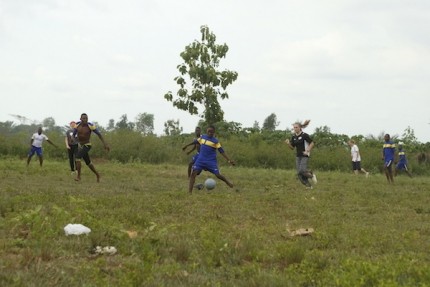
“Sport draws people together and creates community. It’s really neat how just one single soccer ball and an open field can bring people together. You can have a relationship with someone even though you don’t speak the same language.” – Stephanie McDonald, Benin LIFE Team trip co-leader
When sports are used in conjunction with humanitarian work, great things can happen. In May, GAiN partnered with SportAid, a non-profit organization that uses sport as a tool to help impact disadvantaged communities, to organize a trip to Benin with the Trinity Western University women’s soccer team.
The team of 25 women, plus 12 others (coaches, family members and media), flew to Benin expecting an eye-opening and challenging experience.
On their first full day, the team went on a tour of four different villages, seeing the progression of a village without a well to a village with a full-working deep-capped well. They started with seeing firsthand where villagers had to go to get their water — a swamp situated at the bottom of a hill. The sight of a woman gathering dirty water into a basin really impacted the team, many of whom had never left Canada before this trip, bringing the heartbreaking reality of the water crisis right before their eyes.
In the second village, they got to see the well-drilling team at work and ask them questions; while in the third village, they had the chance to witness the flushing of a well. This is a necessary step in the installation process, where dirty water is sprayed from the well before eventually spraying clean water. The transformation from seeing brown and muddy water to clear water was an inspiring sight for the team.
Lastly, they visited a village with a completed well that was in full use.
Some of the team got to help get water for villagers, using the hand pump and carrying water basins on their heads.
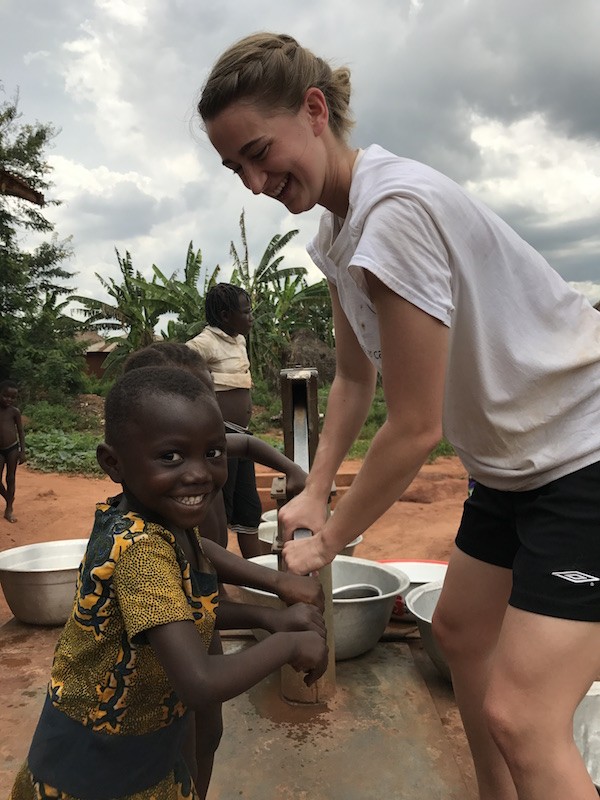
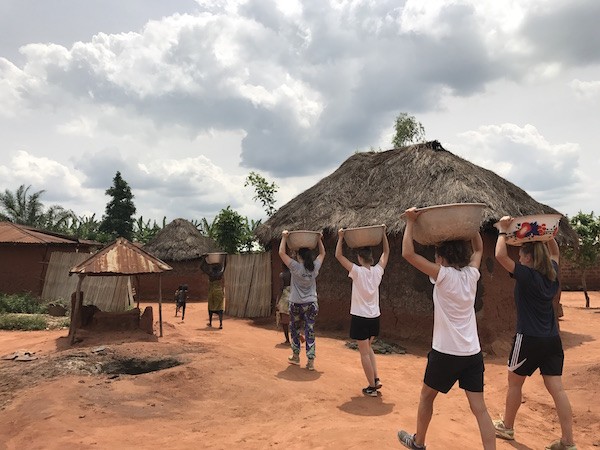
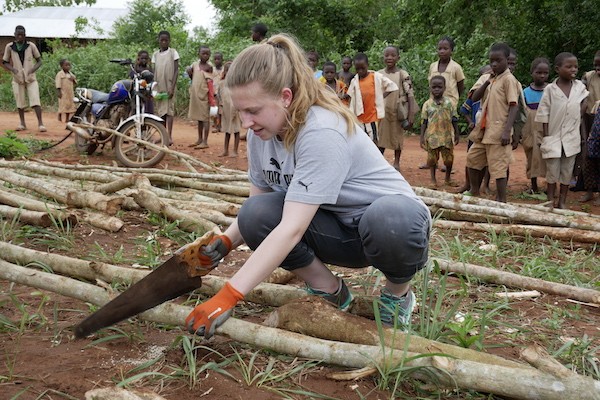
The rest of the trip consisted of soccer games, village chores and construction. The team split up into three groups to build concrete pads for wells and help construct church buildings.
Of course, soccer played a significant role during their time in Benin. The women had a chance to play with the local soccer team (all men), splitting into two mixed teams of women and men, instead of playing against them. Later in the trip, they also played against a local women’s team, further experiencing the power that sport has to break down cultural and language barriers.
“The community speaks the language of soccer even though we have this language barrier,” Brooklyn, one of the team participants, said, recalling a day they played a soccer game outside the house and people gathered around to spectate. “It was so fun to have the community come out and watch us play [even though] they didn’t know us and we couldn’t speak to them.”
It was the relationships that they made with village children that really stuck with the team, McDonald observed.
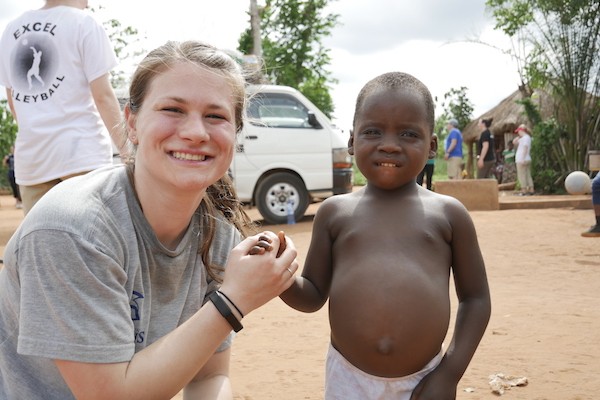
“A highlight with a lot of the women was playing with different kids in the villages and getting to use something that a good portion of their lives is consumed with. Playing soccer can be used to engage and show love to people.”
“It was amazing to see how these kids get such joy out of having a soccer ball,” expressed Brooklyn. “[Something] that brought sheer joy to me was that whenever we brought out a ball, even though there was a language barrier the kids instantly knew we were just playing soccer. [They] split up into two teams.”
The slowed down culture of Africa and the meaningful relationships they made during their short trip inspired the team to be more present in their everyday lives when they returned home.
“They want to make the relationships here, back in Canada, more meaningful through touch and face-to-face,” McDonald explained. “Quite a few women had told me [they] were challenged to bring that aspect back home.”
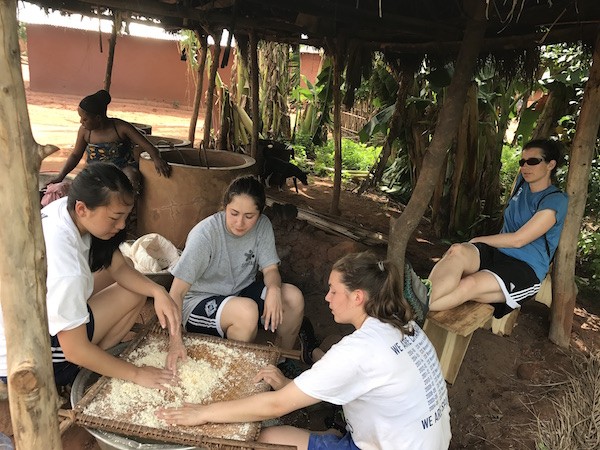
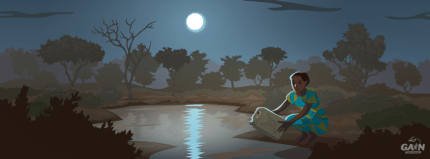
Abandoning all other activities, Elizabeth left her village of Loukintowin to search for water. Her only chance of finding water was the nearby village five kilometers away.
“Water is life. Whatever activity we might do, we cannot do it without water.”
This treacherous journey cost villagers a lot. A loss of income for farmers as they couldn’t work on their farms. A loss of an education as children often missed school. A loss of quality time spent with their families as the mothers were away for long hours.
It even had the potential to cost someone their life. Mokpa, the nearby village, would not allow Elizabeth to fill her jerry can until their own villagers were finished filling their pails. At times, this meant that Elizabeth spent the whole night waiting and returning home in the dark at 2 am, risking her safety on her commute.
But we shared an opportunity with Elizabeth and others that would bring an end to this harsh reality.
Four deep-capped water wells were provided to the Logozohe district in Benin, which included Elizabeth’s village.
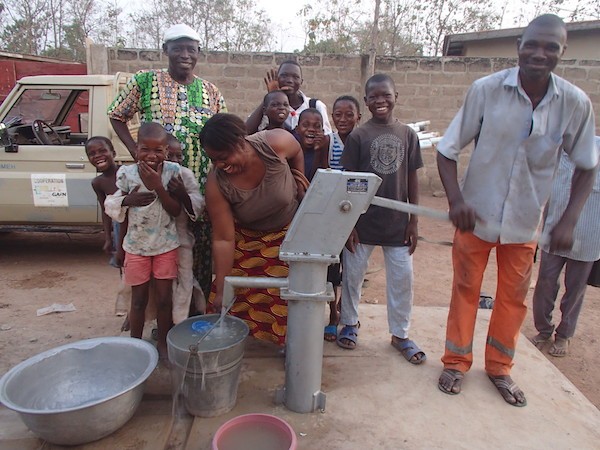
Justice was brought to their water crisis. Clean and safe water was now accessible in each of their villages. “These water wells brought a lot of welfare and life to our community! Now we are in good health,” share villagers.
Today, Elizabeth is the president of the district’s women’s group.
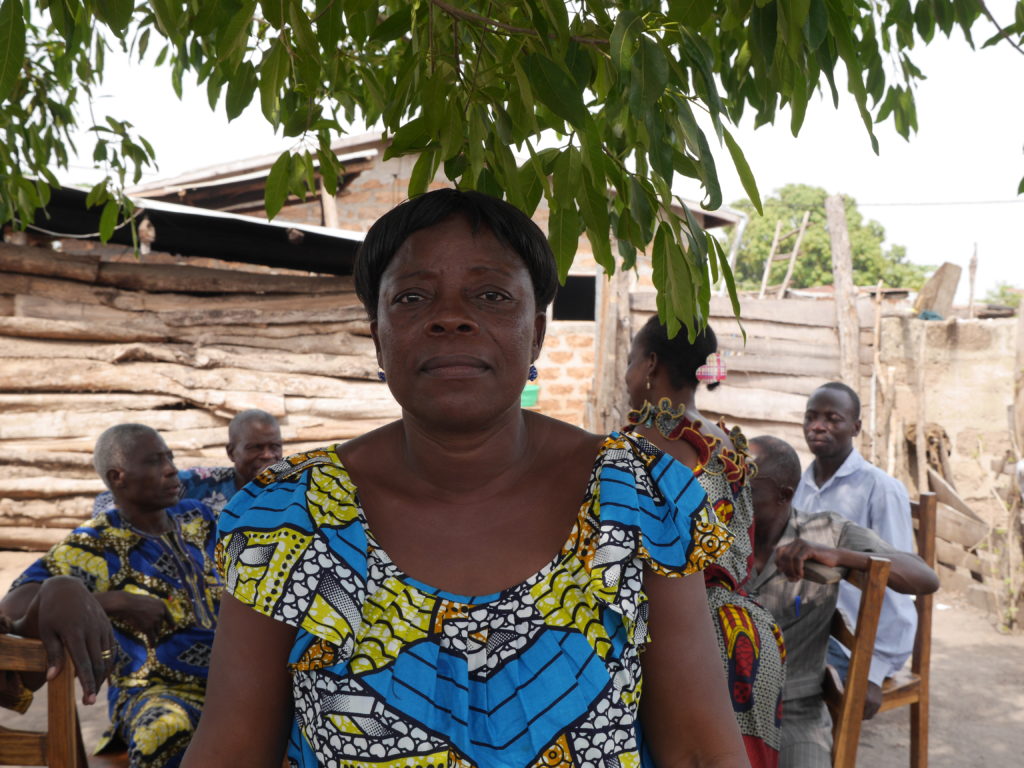
“Now it is possible for us to do our own activities and make a living,” comments Elizabeth. “I have a business and sell things like cassava flour and charcoal.”
Through a partnership with the JESUS Film Church Planting Strategy, 400 villagers also had the opportunity to hear about the Living Water for the first time. As a result, 122 people made a decision to follow Jesus, and 45 people are now being discipled.
“The local church has been hugely impacted,” states Elizabeth. “As a result of the wells, we’ve been able to share God’s love to many people in their households. That’s why anytime I go to the water well, I praise God for providing for our needs.”
Elizabeth’s journey for clean water is not uncommon. Even in her excitement, she shares the pain of knowing that a nearby village has no safe water for their hospital. And how a river used as a water source for several villages has now run dry.
There’s still a desperate need and so much is lost in the pursuit of water, which quite often isn’t even safe water to use. In fact, according to the World Health Organization,1 the time spent gathering water around the world translates to $24 billion in lost economic benefits each year. Imagine the cost; yet imagine the opportunity!
All of this can change!
You can help give back what villagers have lost.
Your involvement is vital for the survival and wellbeing of people like Elizabeth to gain access to safe water for the first time. For every US$1 invested in water and sanitation, there is an economic return of US$4 by keeping people healthy and productive.2
A deep-capped water well costs $8,500 to provide and supports an average of 1,000 people. Your gift of $85, $170, or $425 provides safe water and the Living Water to villagers currently living without it; not to mention it removes the terrible cost people and their communities experience.
WOULD YOU MAKE A DONATION TODAY TO HELP PEOPLE LIKE ELIZABETH?
P.S. There are still 663 million individuals suffering from unsafe water sources.1 You can help end the cycle of devastation and death that parasite-ridden water has caused for generations.
1 Source: UNICEF.org and WHO.int
2 Source: WHO
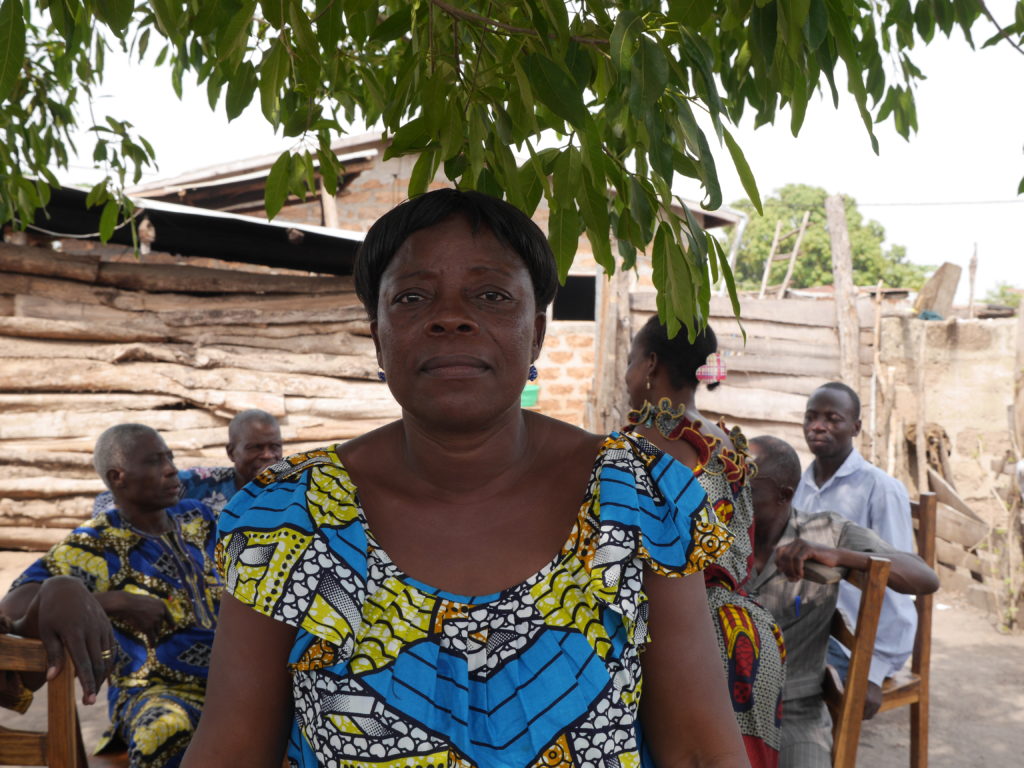
Did you have a glass of water today? Was it safe to drink?
For Elizabeth, the source of water she depended on was filthy and parasite-ridden. Yet, she lost countless hours in her day searching for it. “Whatever activity we might do, we cannot do it without water.”
This is a daily reality for millions of people in developing countries.
Today we mark World Water Day, an international observance to draw awareness of the importance of safe, accessible water for everyone.
Did you know
- 1.8 billion people use a source of drinking water contaminated with faeces1, putting them at risk of contracting cholera, dysentery, typhoid and polio. Unsafe water, poor sanitation and hygiene cause around 842,000 deaths each year?2
- 160 million children suffer from stunting and chronic malnutrition linked to water and sanitation.3
- Diarrhea is the 3rd leading cause of child death, a majority of which are water-related.3
- In low and middle-income countries, 1/3 of all healthcare facilities lack a safe water source.3
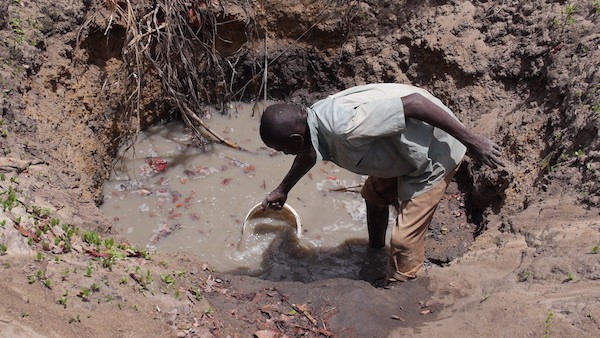
The only source of water for 663 million people4 is polluted due to human waste, animals and run-off ground water. It’s unsafe for drinking, cooking, bathing, gardening, treating patients and so much more.
We know God has better plans for Elizabeth and others. He desires to give them hope and a future. That is why it is our desire to come alongside those desperate for clean water and the Living Water.
This World Water Day, how will you remember it? Will you take a moment to remember villagers like Elizabeth? For only $8.50, you can give safe water to one villager.
WILL YOU PARTNER WITH US?
1 WHO/UNICEF (2014)
2 WHO (2014)
3 WHO/UNICEF Joint Monitoring Programme (JMP). (2015)
4 WHO/UNICEF (2015)
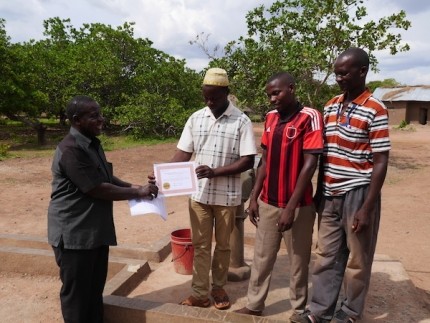
In Africa, nothing commemorates an important event like a ceremony. And after the implementation of a water well, a celebration is very much in order.
We designed a ceremony with plans to celebrate new beginnings in each village where we complete a well. To officially hand the well over to the community, we involve village leaders, the borehole committee and district government water authorities. The entire community is invited to celebrate and witness the commitment that village leaders are making to manage and maintain the water point.
This gives the community an opportunity to know who is on the borehole committee so they can keep them accountable and encourage them to take their roles seriously. It also recognizes the Ministry of Water and has them officially record the water point.
We had our first opening ceremony in the village of Namatumbus, southern Tanzania, where villagers gathered around excitedly at the site of the new well. Village leaders signed a code of ethics, committing to serve the village and maintain the well.
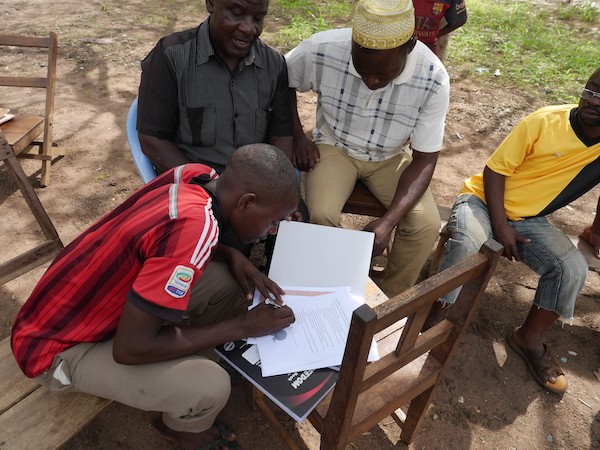
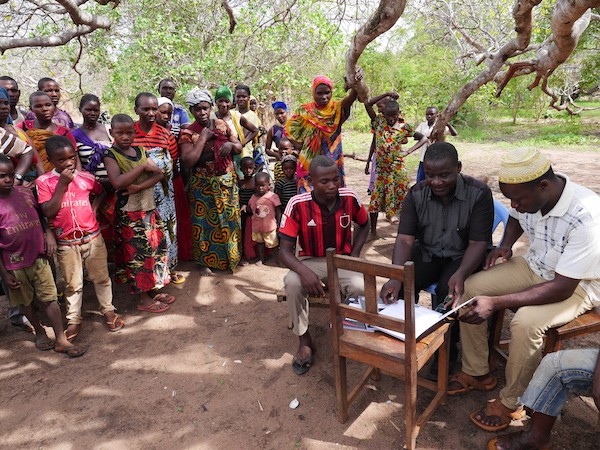
The community got to learn about how the well will be managed and learned about proper water use practices. After, they were given the opportunity to ask questions to their leaders, the district water engineer and GAiN staff.
The ceremony closed with the borehole committee being presented with a certificate and set of log books to help them manage the water point.
We are committed to long-term sustainability and know that community involvement is a key factor. These ceremonies are just one way to foster community ownership and build accountability within the community to care for the well.
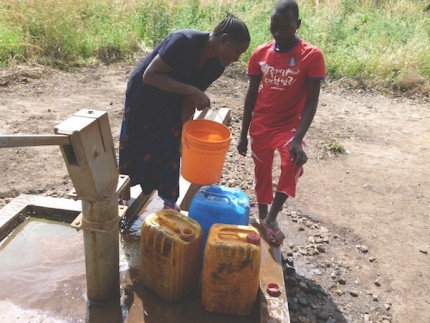
As our team travels from village to village, a common theme we hear is that we are making history. The village leaders say that the problem of disease and lack of clean water are now history in their villages. It is a problem of the past that the villagers are glad to leave behind.
With the deep-capped water well providing easy access to safe water, these villages have a new hope for the future. It is nearly impossible for a community to move forward and develop without water. They are stuck in the cycle of poverty and disease, unable to free themselves. Clean water changes everything. A new story begins in these three villages, one of hope and life.
Kimawe
The farming village of Kimawe in Southern Tanzania is an example of a village changed by safe water.
Surrounded by hills and entering its dry season, the country was in great need of water.
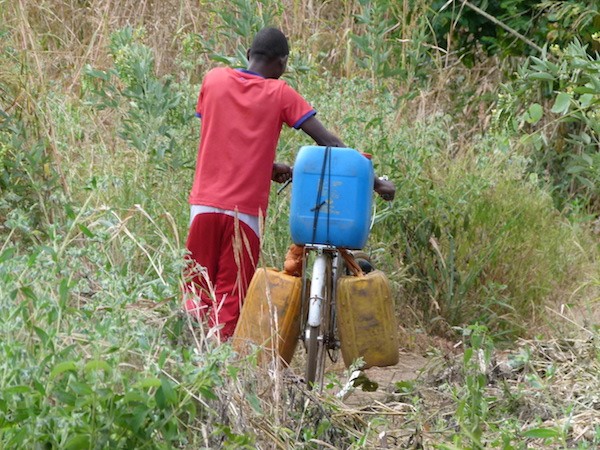
The villagers were travelling upwards of three hours, across the farmland and over hills to find a single bucket of water that isn’t even clean.
In a desperate attempt, the village gathered the young people and tried to dig to find water. They tried many times but did not succeed.
When we came to Kimawe and provided a well in the center of their village, it gave them much more than just clean water; it gave them more time to spend with their families to farm and get an education.
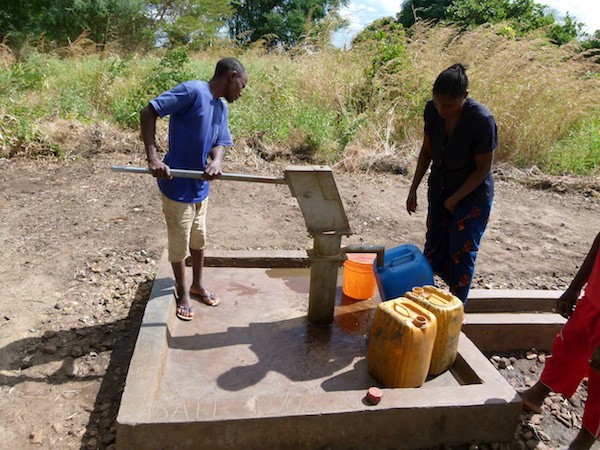
The families of this village benefited greatly from the well because the women are now able to stay home, care for their families and provide meals for their children so they can go to school.
They were amazed that the people in Canada would think of them in Southern Tanzania and were so grateful for this gift.
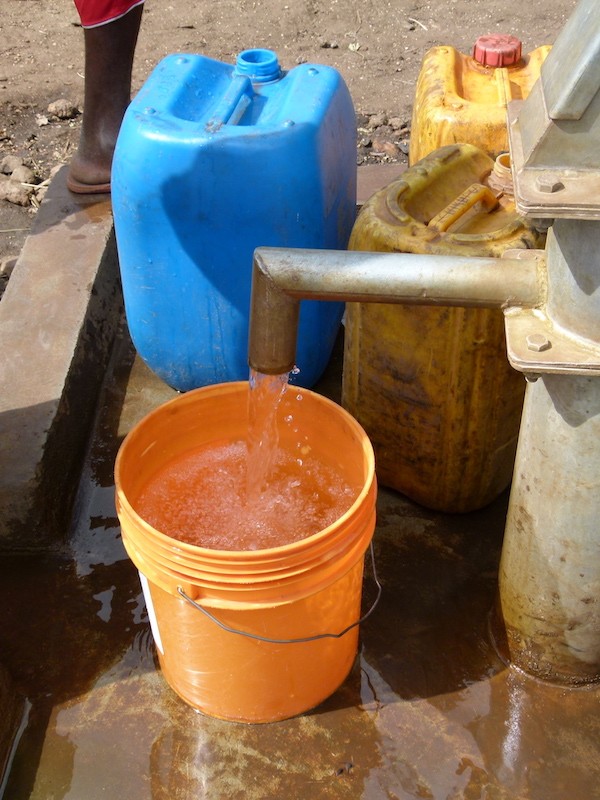
Another way clean water changes lives is by providing the opportunity to introduce villagers to Jesus. When we were in the village of Marambo B, we asked the people standing around the well if they had seen the JESUS Film, shown in partnership with the JESUS Film Church Planting Strategy (JFCPS). We received an enthusiastic response. “Yes, we saw it. It was wonderful, we liked it very much!”
A couple who became followers of Jesus at the film showing came forward and the husband said, “This was a very exciting film and it is something we take to remember in our hearts.”
The wife said that when they saw the film, they decided to become followers of Jesus and now their whole family attends the born again church. They were drawn to Jesus because they loved His words and promises. Before watching the film, they had no idea that God loved them and would help them.
Nandili
Water is also a scarce commodity in the village of Nandili.
Before we provided a well in this village, the people had to travel 18 km to find clean water. Women would spend most of their day travelling to collect water on the back of bicycles.
Now that women are able to stay home and care for their families, the children are able to have a meal and go to school with clean uniforms. They spend less time fetching water and more time studying. The well is next to the primary school where the children can fill their jugs as they walk to class.
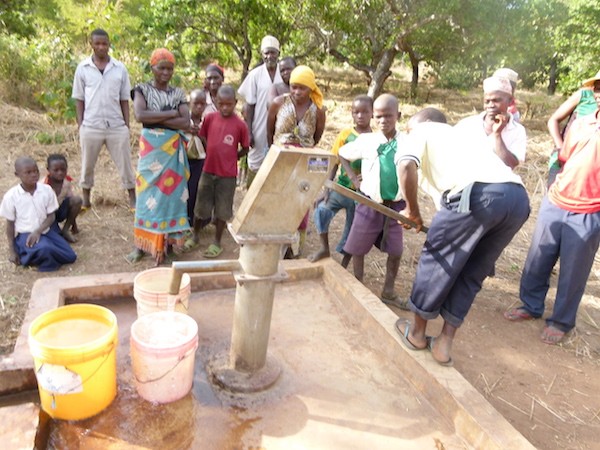
The village also has plans to use the water to make bricks for new school buildings. Most of the classes meet outside, which means they cannot study during the rainy season.
Brick making is a significant source of income in Southern Tanzania because the soil is strong. The process of making bricks involves creating a pit of mud, packing the wet soil into forms to make rectangular shapes and then baking them over a fire. The challenging thing about this task is that it requires a lot of water which is difficult for most villages to collect.
Chilaile
Chilaile in Southern Tanzania is no exception. Water was scarce and almost non-existent in the dry season, but now that we provided a borehole well, this village has been transformed too.
The water point is surrounded by bricks laying out to dry.
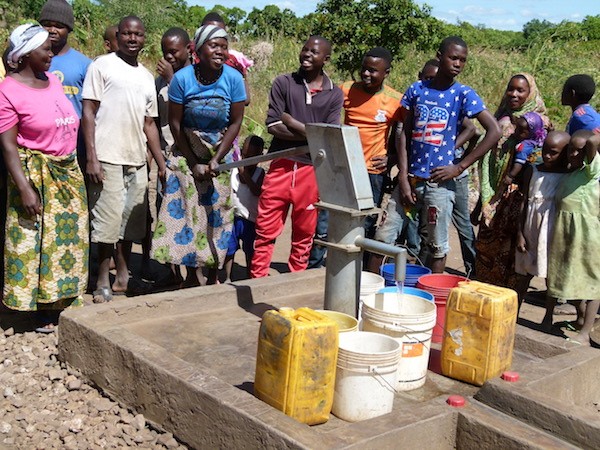
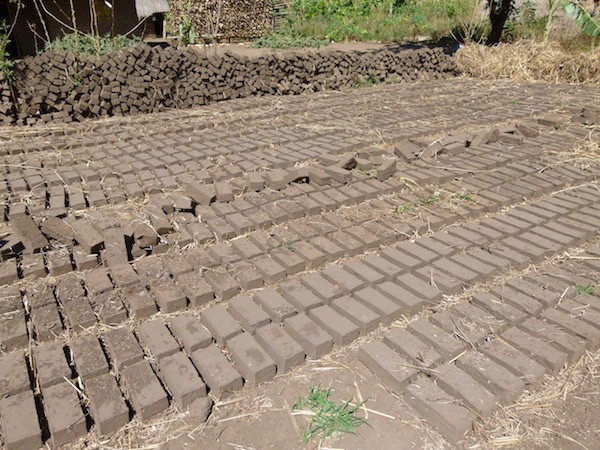
The village is planning on using them to build a new school building. Not only has the well improved the local economy, it has also had a huge impact the health of the village. They used to suffer from a lot of waterborne diseases such as dysentery and cholera, but now that they are drinking safe water, this has greatly decreased.
Kimawe, Nandili and Chilaile are just three examples of how safe water transformed their communities.
But just as these three have received this gift, there are three more still in need of it.
WOULD YOU HELP TRANSFORM ANOTHER VILLAGE? ANOTHER PERSON’S LIFE?
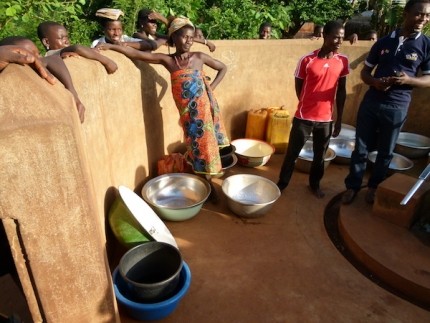
In a village where you have to put chemicals into dirty water to make it drinkable because cleaner water is 15 kilometres away, it is no surprise that providing a deep-capped water well becomes a major event.
That is what happened in Hountakon, Benin.
The entire village came out to watch the installation of a new water source that would provide them with accessible, clean and safe water.
Hountakon’s well was just one of 55 wells that our Water for Life Initiative (WFLI) team visited during their trip to Benin and Togo in April 2016.
Adjaha Vodje, Benin also received a well, which has made a significant physical and spiritual impact on the village.
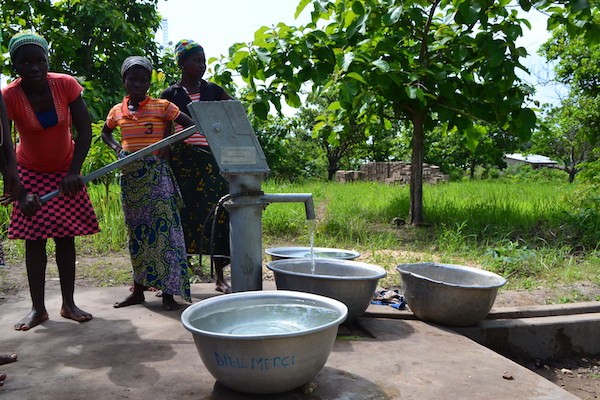
Before the well, people were forced to spend the entire night searching for enough water to fill a bucket. Dry seasons were the worst. Some people would even travel to a city and buy water.
“The need for water is really big and it has been a great tool for us to demonstrate God’s love in the area. The water is really giving true life to every person,” said Pastor Ansel, local pastor. “The presence of the water well in the village has eliminated the fatigue of people and the difficulties that we had to face in the past. I lack words to describe what it means to us!”
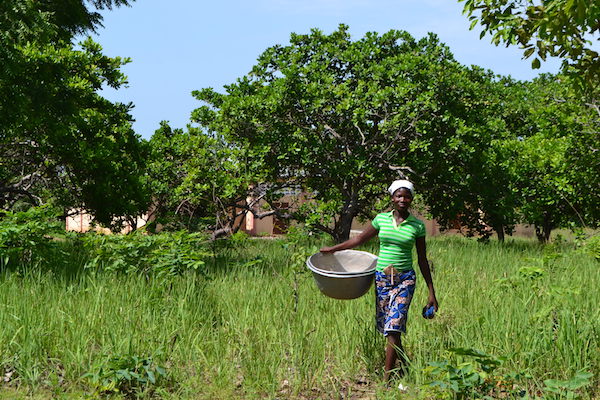
The team noticed that in southern Benin, more villages desire to upgrade their wells to a water tower. In fact, many are getting access to electricity or can rent a generator for 2,000 CFA ($4.40 CAD) per day.
Gbeze-Mouzouhoue, Benin is one of the villages that has upgraded their well by installing an electric pump.
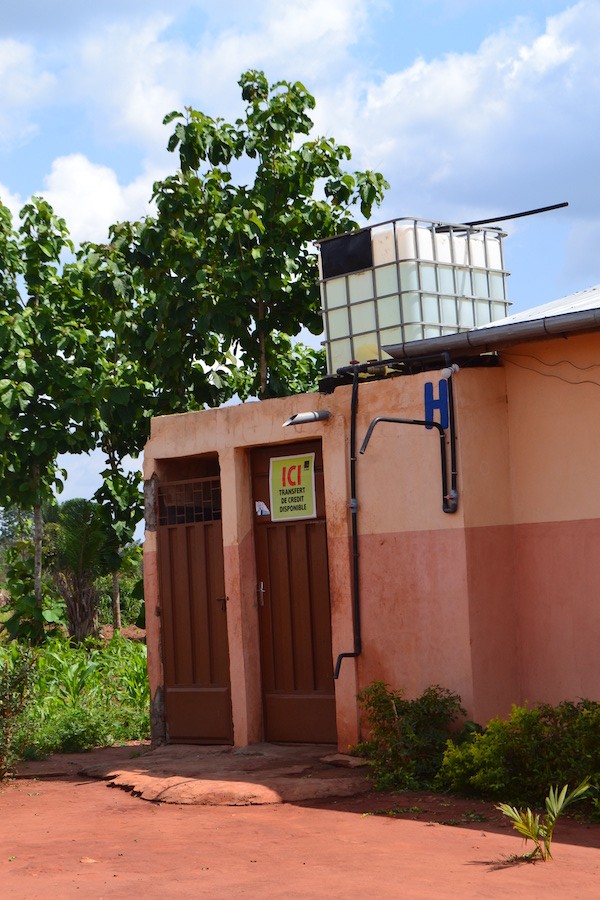
The village used to rely on rain water that was collected in a tank that sat on top of the village clinic. The clean water provided by the well means that the medical clinic can run more efficiently and cleanly.
“When the patient is thirsty, they cannot wait until the water to come from a distance! And it’s so precious for us and it’s really helpful to performing our job well,” the clinic’s head nurse commented. “When you come to a clinic and have no water to wash the body, people just won’t come!”
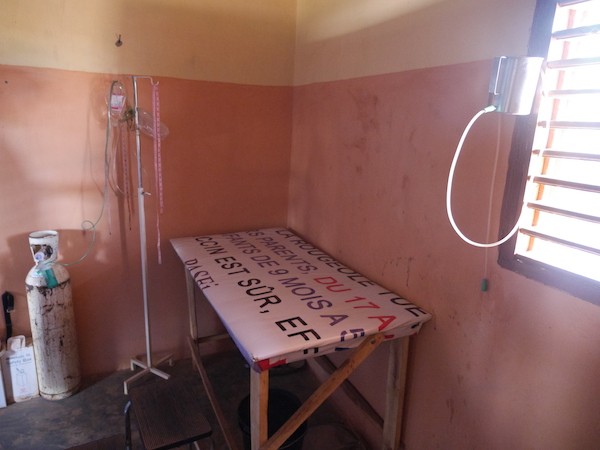
Now that clean water is accessible, villagers no longer have to worry about going 10 km to the next village for unaffordable water. They are able to pay only 25 CFA ($0.05 CAD) per 20L of water, with the money going toward the maintenance of the pump.
Wells are also changing lives in Togo. We provided a well to the village of Zooti Kpota back in August 2015. Since then, the well has continued to provide clean water for the village.
We also partnered with the JESUS Film Church Planting Strategy who partnered with a local church in the village. About eight months later, the local pastor was able to talk about how inspiring the changes have been to the church and its people. Churches have been growing in number and church members have been growing in their faith. He also spoke with great enthusiasm about some of his visions for other projects. One thing he plans to do is start a latrine project in the village for proper hygiene and sanitation.
The positive effects of a water well in a village can be seen quite quickly and with each passing year and the faithful support of our partners, plans will continue to be implemented so that lives are transformed.
WOULD YOU PARTNER WITH US TO HELP IMPACT EVEN MORE COMMUNITIES?
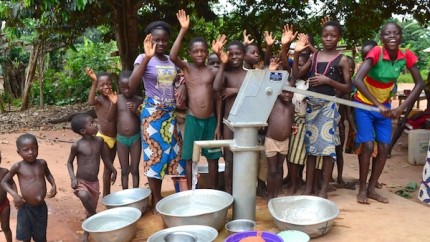
While done with good intentions, there have been water systems set up for developing countries that fail to sustain themselves – sometimes breaking down just a few years later, according to a 2004 report from Rural Water Supply Network – leaving villagers without clean water once again.
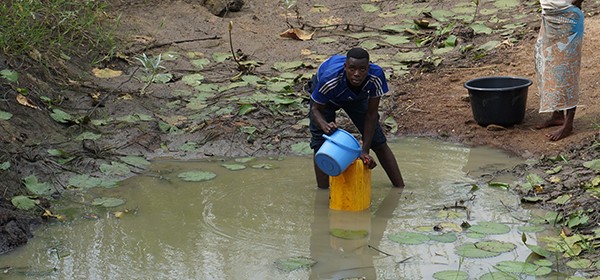
As a result, GAiN’s Water for Life Initiative (WFLI) Sustainability Project was put in place to ensure that the benefits of the wells and training programs would be long lasting – providing villages with the proper tools and knowledge to fix and maintain the water wells, as well as carry on best sanitation and hygiene practices. The goal is to create a system that does not just serve the community for the moment, but one that will continue to be beneficial to future generations.
“We recognized a need to focus on long-term sustainability a couple of years ago,” explains Tess Mawson – Project Manager, Sustainability for GAiN’s Water for Life Initiative. “As our program continued to grow, it was evident that we needed to provide not only quality services but enable villages to have continual services over longer periods of time.”
The first step was an in-depth review of current and previous WFLI projects – looking for insight into their successes, as well as areas that need improvement. Surveys were implemented, which Mawson felt would point the team in the direction of areas they need to focus on.
“I think sometimes with aid we could come in and say, ‘This will solve your problems,’ but really that’s not what they needed or what they wanted. We really wanted to provide solutions that are based on what the local people need,” says Mawson.
The planning and creation of two surveys started with an initial survey process in Tanzania in July 2016.
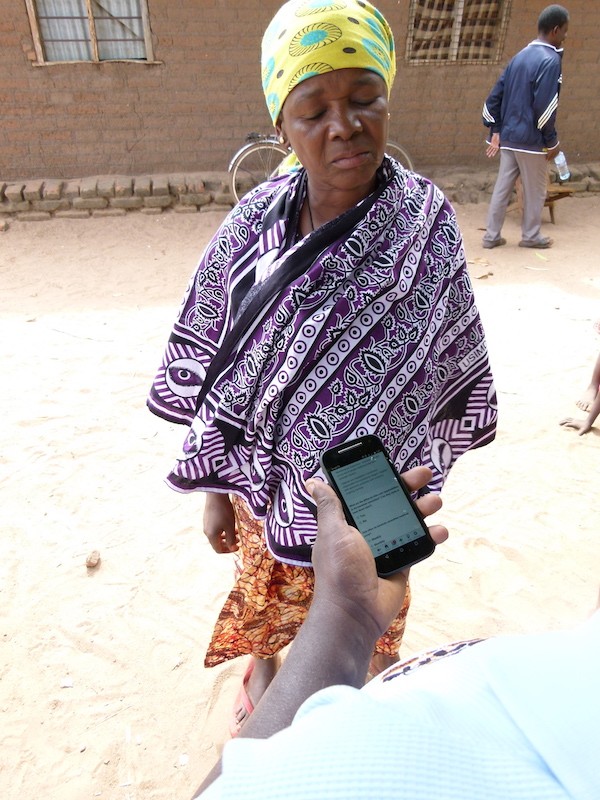
One of the surveys went to households, with questions on the use of water in their everyday lives (how they get their water, their handwashing practices, if they currently pay for water etc.). The other survey was for borehole committees, asking questions related to the wells (financial stability of the water management program and specifics on the functionality of the well and any breakdowns that may have occurred).
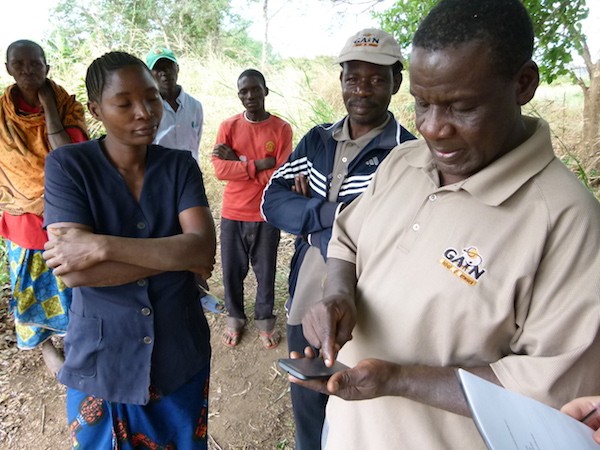
Borehole committees and regional repair representatives are a significant part of sustainability, as they are made up of locals responsible for caring for, maintaining and repairing the deep-capped water wells. They also manage and collect fees charged per bucket of water that goes towards maintenance.
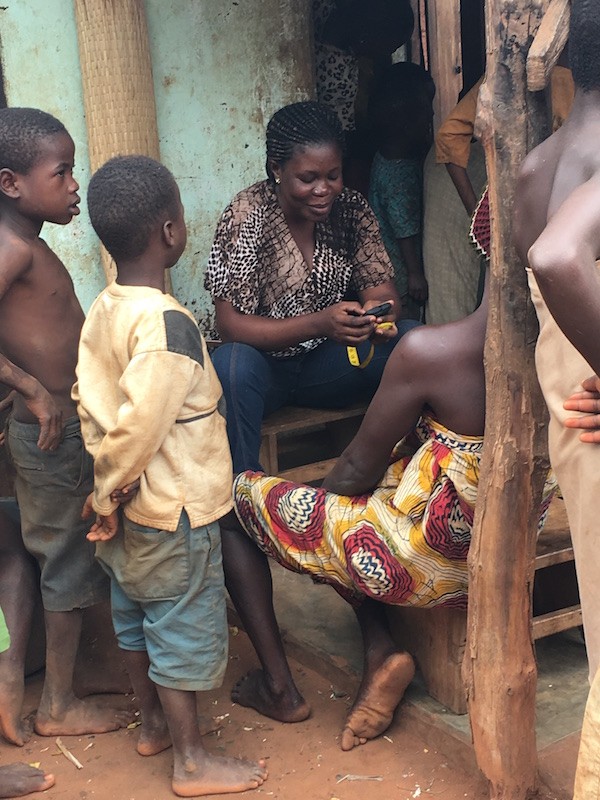
In the coming year, GAiN intends to refine the borehole committee training manuals with a focus on budgeting and saving, ensuring wise financial decisions are made that will preserve the well and further the development of the community.
Regional repair representative programs have been revisited as well. Further equipping reps with the tools and knowledge to become the main contact person for the community is a key focus area. The plan is to invest in locals so that the community will be able to support themselves.
“We want to build up local repair representatives with business and technical skills and provide them with clients by connecting them to the villages with our wells, to help them successfully run their own businesses,” says Mawson. “We also want to connect local supply companies to repair reps so that they can get the resources they need to do repairs. This is a more sustainable model because it improves the local economy and provides jobs and allows for independence and continual support.”
Another focus area of the Sustainability Project is hygiene and sanitation training.
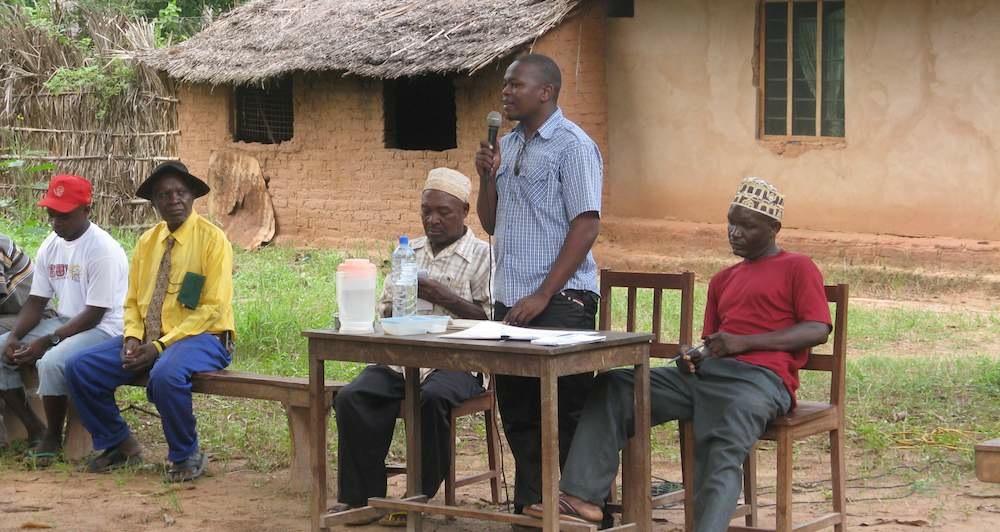
With the current training program in place, the goal of the Sustainability Project is to emphasize to locals the impact that proper hygiene habits and behaviours can have on their health in the future.
Emphasis on the future is important, because African people tend to live in the moment and so future planning is often not a priority.
“They need to get through today, they need to survive, they need to feed their families and things like that,” explains Mawson. “They have a very moment-by-moment mentality, so sustainability is a hard thing for them to grasp but many recognize the importance of it and are willing to work toward that desired future.”
Phase 1 of the project is now done and the team is pulling together the results, which will be communicated in the next few months.
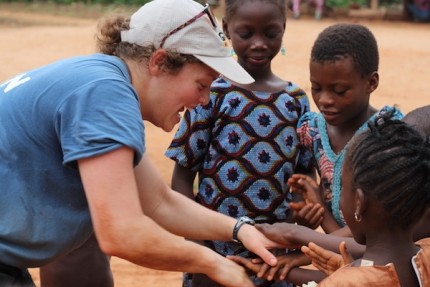
“I think I had a romanticized idea of what the trip was going to be like,” Kyra admitted about the LIFE Team to Benin that she participated in last May. She was ready for a life-changing experience, and a life-changing experience is what she got, but it happened in a way she did not expect.
“Going into it, the focus was more on myself and how we were going to do this really great thing. But as we were there, the leaders were talking about how it is more about partnering with our brothers and sisters in Christ and working together. It is not us coming from North America to make things [better]. You go in expecting to help all of these people, but really, it changes you.”
For the two and a half weeks she was there, Kyra got the chance to work on a variety of projects with the Water for Life Initiative.
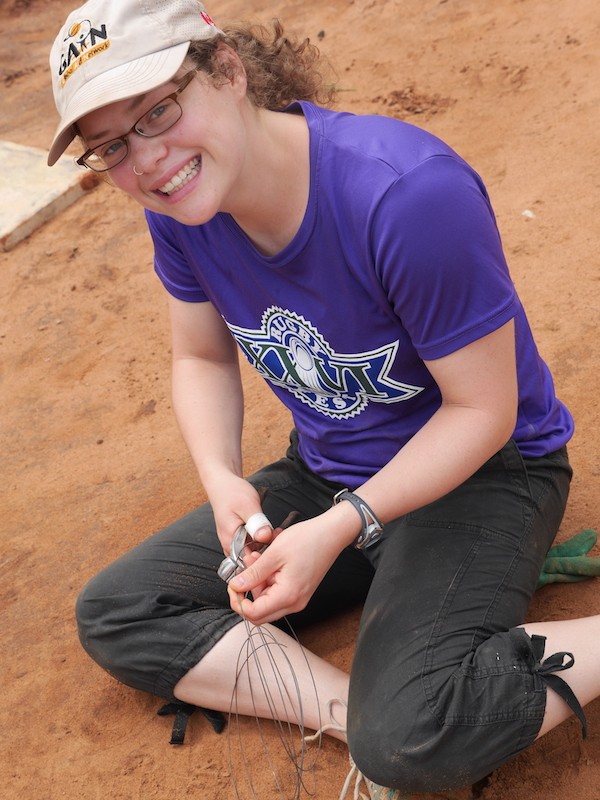
Each one she worked on – whether it was building well pads, performing a drama with the local DRIME team or helping build parts of a church – had its fair share of challenges and uncomfortable moments, but pushing through was worth it.
“One of the main things [I learned was] the importance of stepping out in faith and trusting in God. There were times on the trip where I was nervous and afraid to step out of my comfort zone, but I did it. It might seem frightening and scary to go and be in a place where you’re unfamiliar, but you learn so much and God pushes you a lot in that short amount of time. There’s a lot of growth that happens.”
With the team, Kyra helped build four well pads, alternating jobs each time: digging, shovelling and wiring. A highlight was witnessing villagers’ reactions to the flushing of the wells and seeing clean water come up for the first time.
“Seeing the villagers and how excited everyone was, [realizing] what that meant for their village and health and families – that was huge to see. Knowing that the partnership that GAiN has with villages wasn’t just a one-time thing and seeing that process start was a highlight for me.”
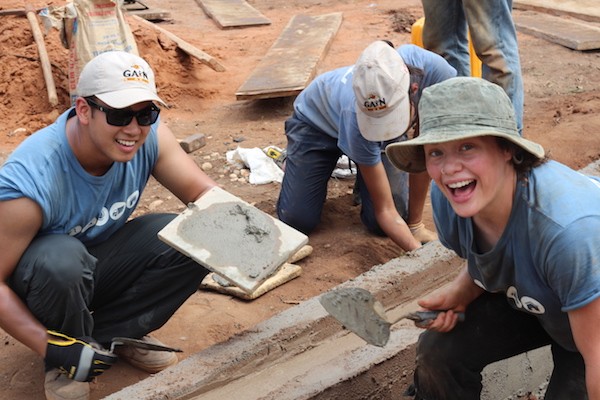
Witnessing, firsthand, the need for clean water also changed her perspective on life back at home.
“Even now, I still reflect on the trip and realize things I had learned, like how fortunate we are. At first I was kind of mad coming home, seeing the stuff that we had and how we don’t appreciate it – even the freedom that we have in church to worship. We have these resources and tools to help others and to use these things that God blesses us with to serve others.”
Part of her life-changing experience was seeing word and deed work together and witnessing how that can change a person’s life.
“As we were working on the well pads, the villagers were watching and wondering what we were doing,” Kyra recalled. It was at this time that some people on the team, with the help of a translator, had a chance to have a conversation with some of the villagers and share God’s message of hope and love.
“When you just love people as Christ would do, it opens up opportunities. When you show them God’s love they begin to ask why. And then you can share that you do it because Jesus loves you.”
WOULD YOU LIKE AN EXPERIENCE SIMILIAR TO KYRA?
DO YOU WANT TO SEE OUR WATER PROJECT FIRST-HAND?
Click here to check out our upcoming LIFE Team projects and/or leave a comment below.
